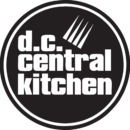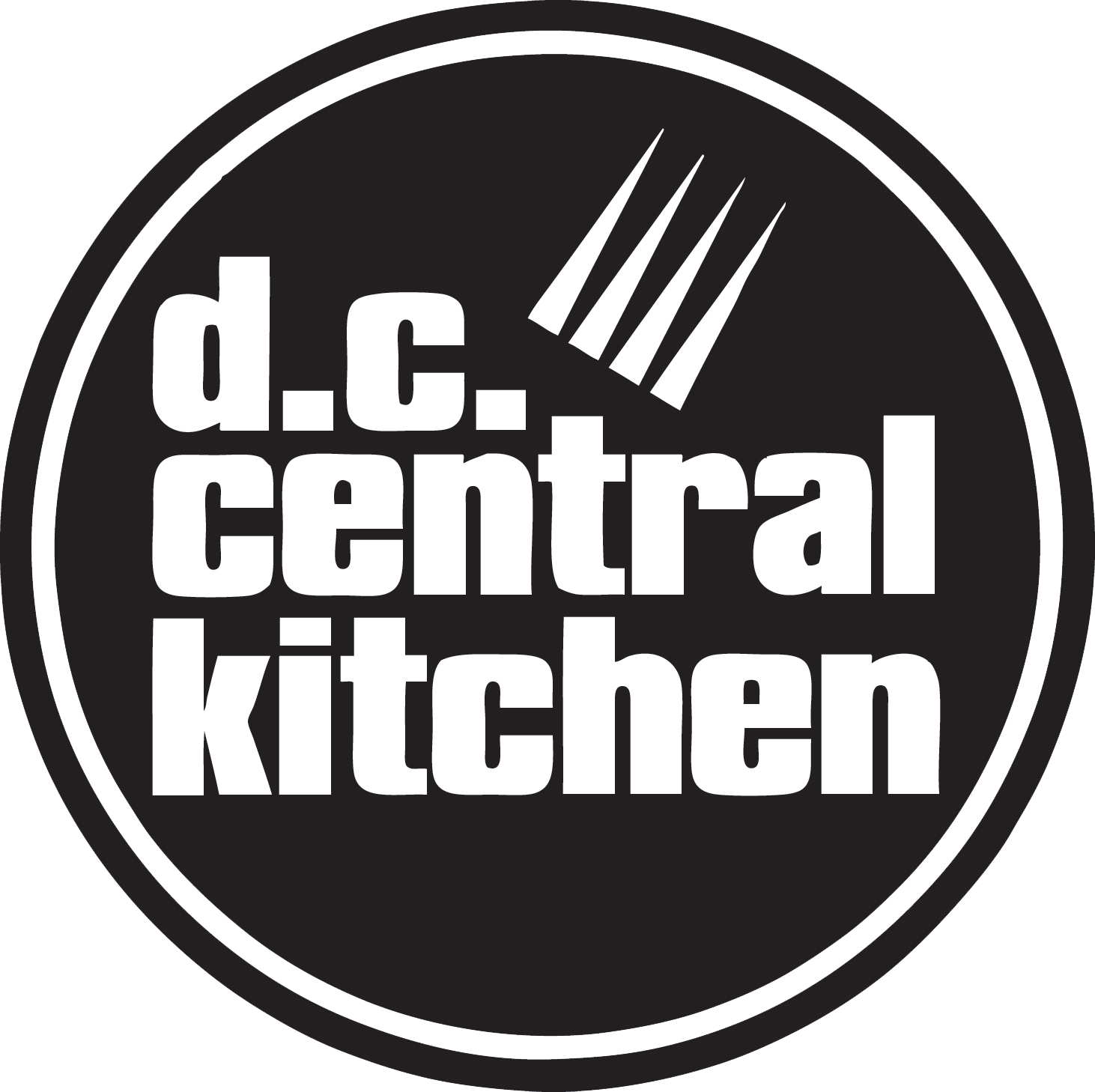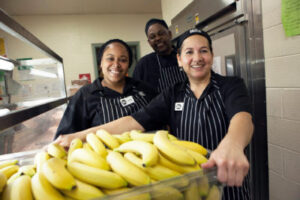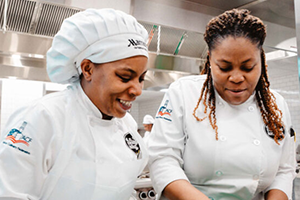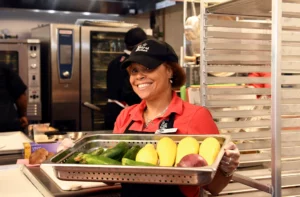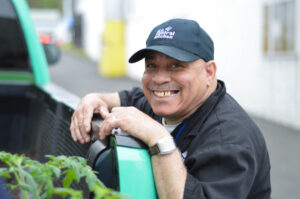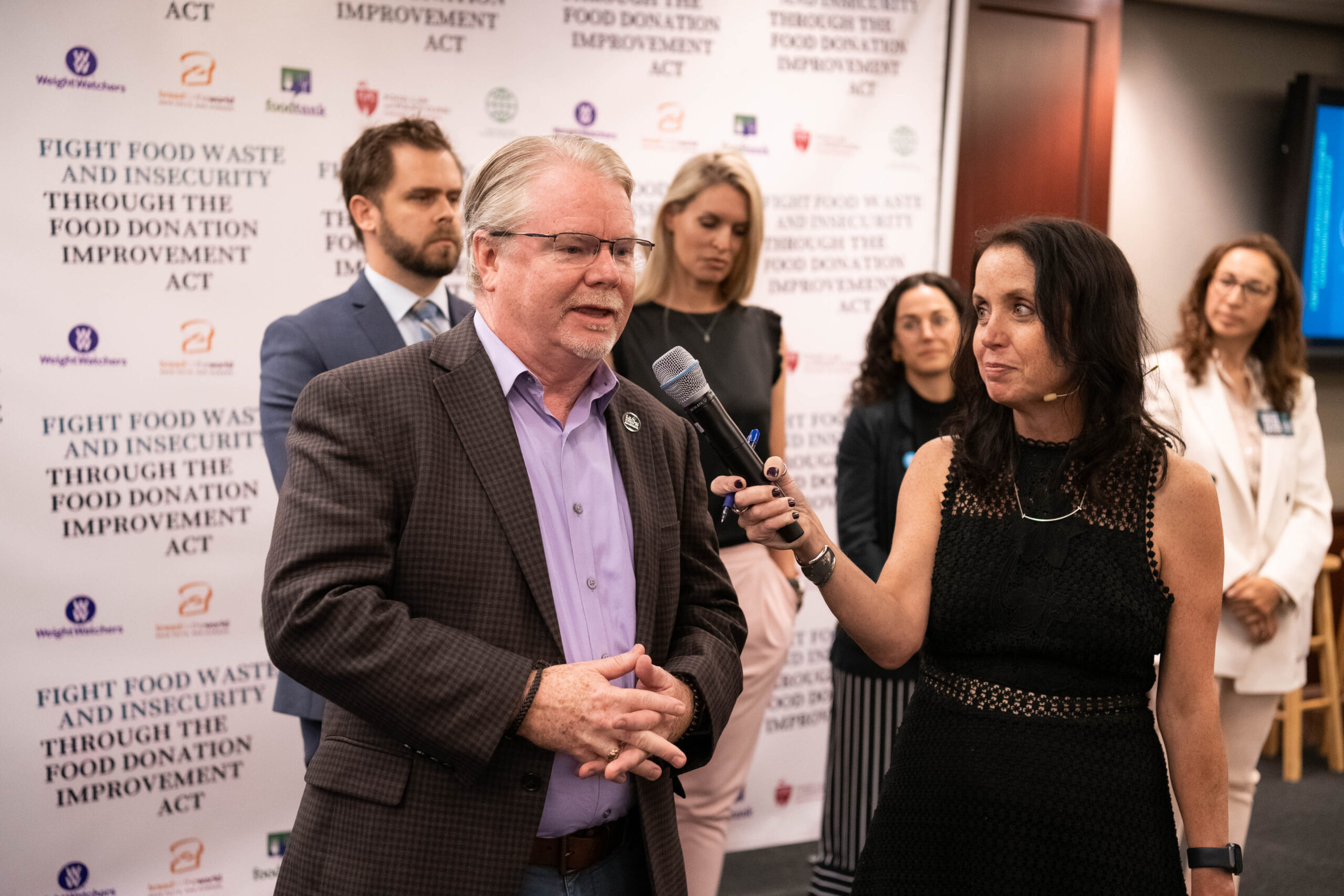Last week, DC Central Kitchen participated in a day of advocacy on Capitol Hill to champion the Food Donation Improvement Act, a bipartisan bill recently introduced in both the U.S. House of Representatives and U.S. Senate, which offers a critical step toward ending hunger and food waste.
In the United State, 30 to 40% of all food is thrown out each year and an estimated 42 million Americans face food insecurity. If passed, the Food Donation Improvement Act will help provide immediate relief to food insecure individuals and families, while also reducing billions of pounds of food waste.
This bill also offers updated, vital protections to the 1996 Bill Emerson Good Samaritan Act. DC Central Kitchen’s efforts to recover, re-prepare, and redistribute surplus food was a model for this landmark piece of legislation, which established criminal and civil protections that encouraged businesses and individuals to donate food to local nonprofits. Thanks to this act’s direct impact on liability concerns and the awareness it brought to the importance of food recovery, our community kitchen model was able to scale across the nation alongside other food recovery innovators like Food Recovery Network and Food Rescue.
After 25 years, food recovery programs have grown in size and complexity, requiring additional detail and clarity in the legal protections afforded by the Emerson Act. At the same time, the original act did not protect restaurants and other businesses from directly donating food to those who needed it; since a nonprofit cannot always be in the right place at the right time to recover and redistribute food, clarifying this additional protection is another necessary fix. The Food Donation Improvement Act offers common sense solutions that will increase the amount of food that can be recovered and shared with food insecure Americans while allowing programs like DC Central Kitchen’s to operate more confidently at the intersection of charity and social entrepreneurship.
As important as these improvements are, solving hunger isn’t just a question of feeding people in the near-term. We support this Act today and remain committed to the larger fight to rip out the root cause of hunger – poverty – through job training, job creation, and more inclusive economic development. We encourage you to contact your representatives to support the Food Donation Improvement Act. For more information on this legislation’s potential impact, please read Civil Eats’ coverage of the event and see DCCK CEO Mike Curtin’s full remarks below.
My name is Michael F. Curtin, Jr. and it is my honor to serve as the CEO of DC Central Kitchen. As the nation’s first and leading community kitchen and a globally recognized social enterprise, DC Central Kitchen is grateful for the opportunity to join today’s advocacy effort and share what we have learned through 33 years of fighting hunger, poverty, and food waste in our nation’s capital.
In the 90s, our innovative structure was a model for the Bill Emerson Good Samaritan Food Donation Act. It was a visionary act that catalyzed the national expansion of community kitchens, like DC Central Kitchen. But times change and organizations like ours have grown to new levels of scale and importance, while the need for emergency food remains all too high. Today, DC Central Kitchen employs 170 people in our community, 100 of whom are graduates of our Culinary Job Training program, all of whom receive living wages and good benefits. We’ve built an $8 million social enterprise portfolio that uses recovered food and local farm products to prepare 10,000 meals a day here in the District of Columbia. Now that the work of combating hunger and food waste has evolved, it is time for legislation to do the same.
The Food Donation Improvement Act offers needed updates to liability protection for food that is both given away and sold at deep discounts by social enterprises like ours. It allows for direct distribution of recovered food to individuals in need, not only recipient organizations. That means nutritious food can get where it is most needed more quickly, rather than being held up in finite nonprofit supply chains. And it addresses issues with quality and labeling standards so our food donors know what they can share, and we know what we can accept and distribute.
These are common sense changes that will allow social innovators like DC Central Kitchen and many of the partners here today to continue serving our communities’ most critical needs. We can prevent waste, nourish people, and safeguard health, together. At DC Central Kitchen, that’s what we call “Good Business.” Thank you.
